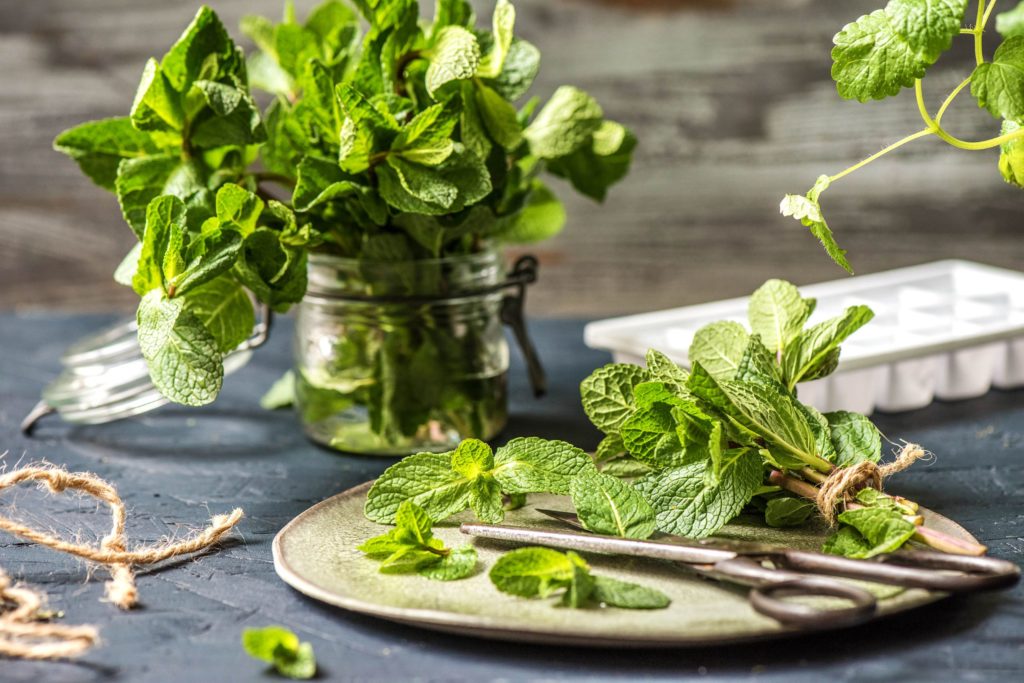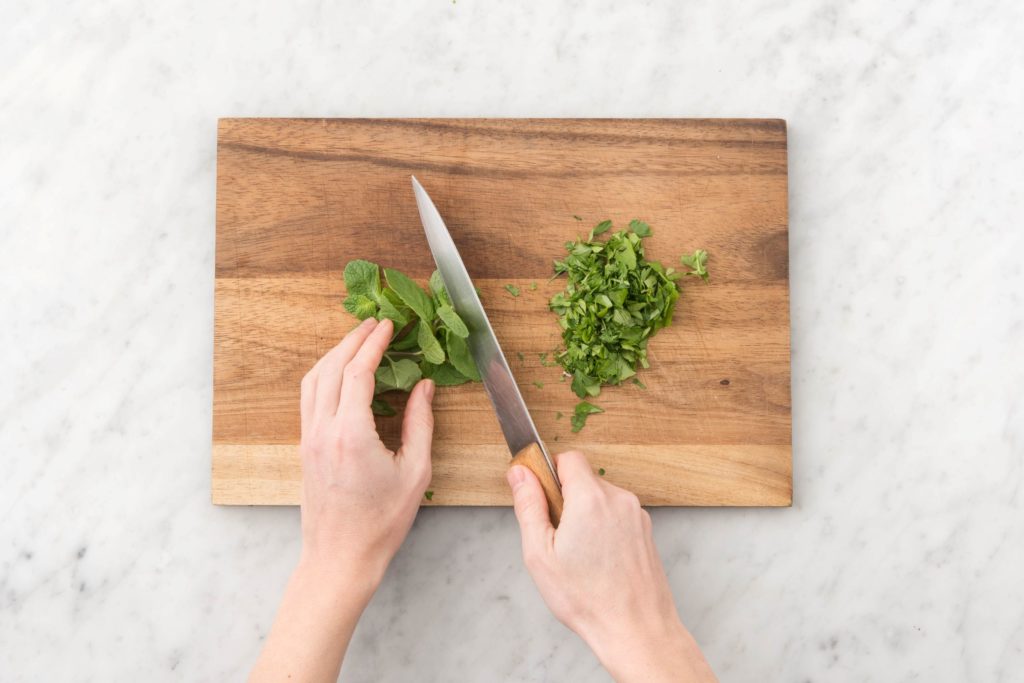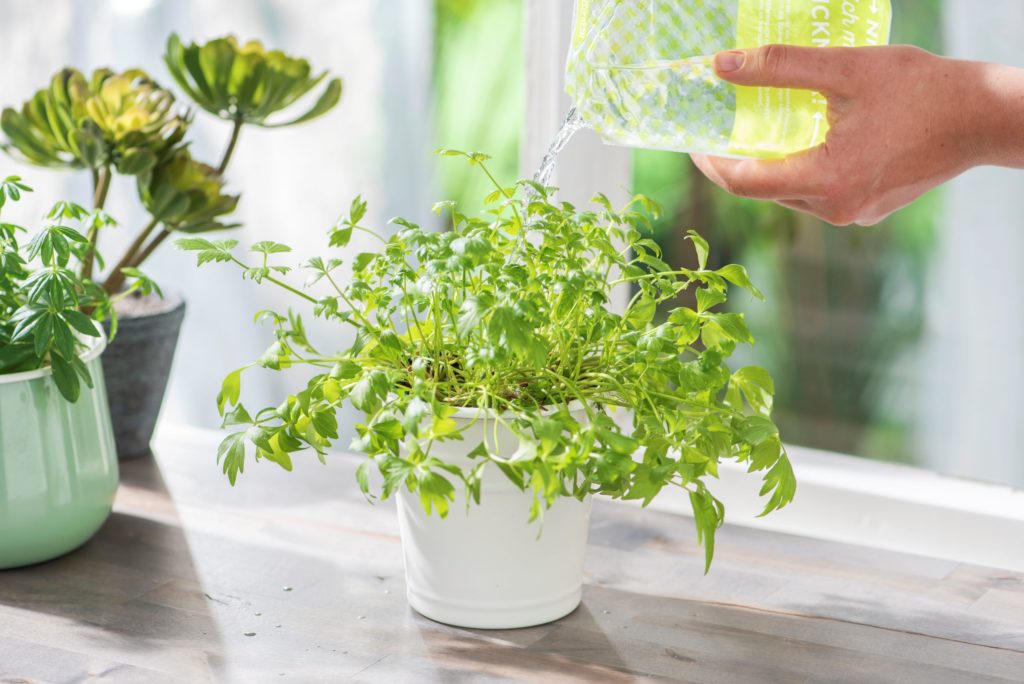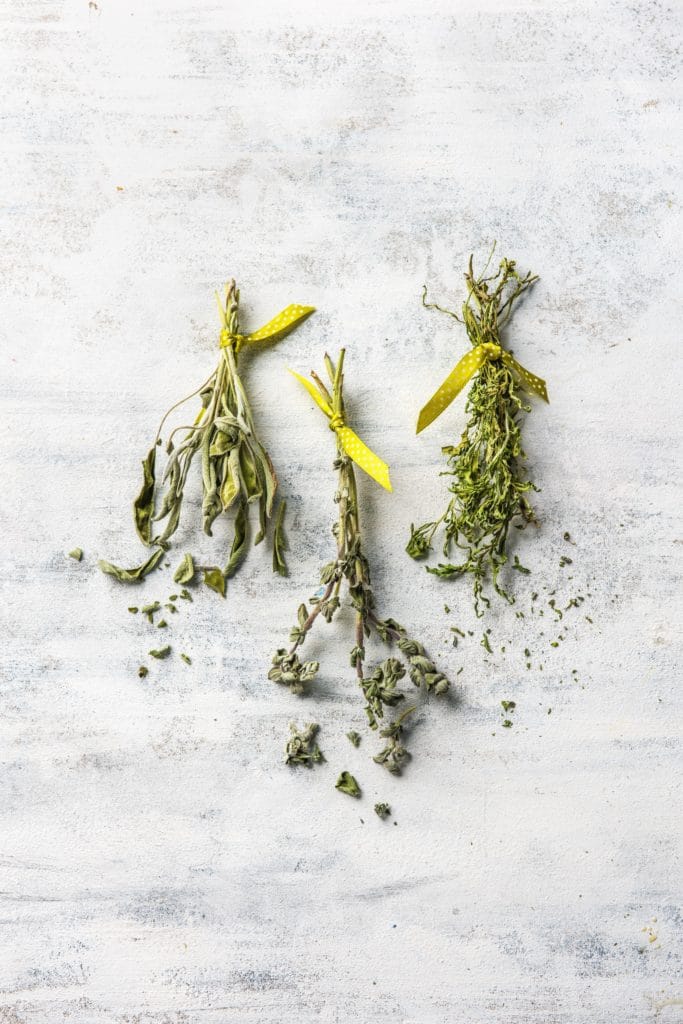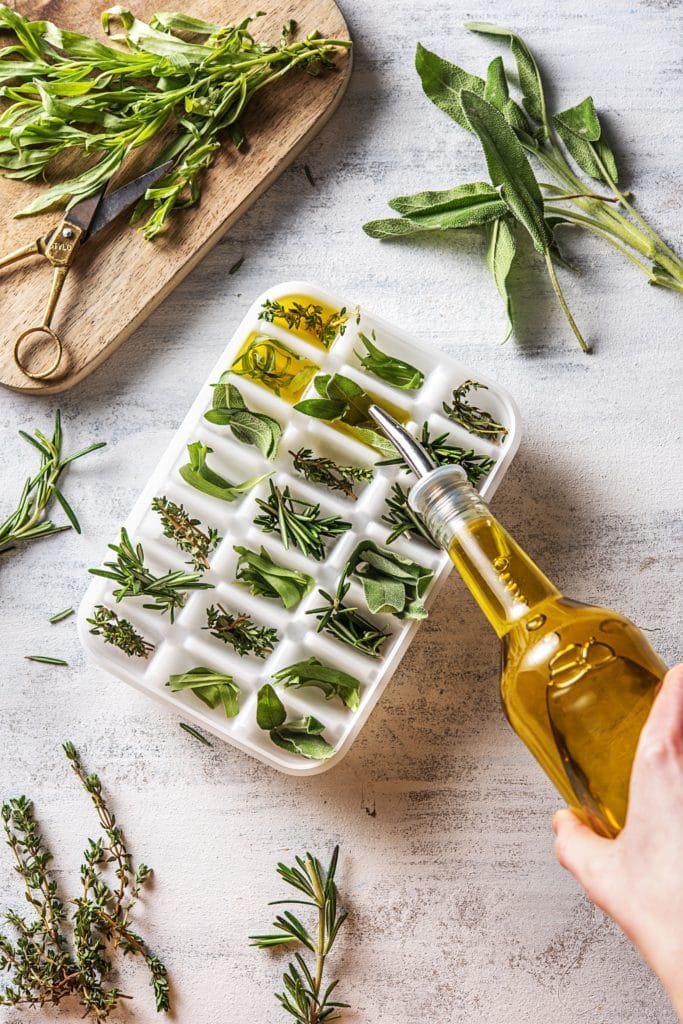How to Store Fresh Herbs So They Last Longer
April 12, 2022After reading these easy tips, you’ll never waste fresh herbs again!
How many times has this happened to you: you buy a big bunch of cilantro and open the fridge a few days later to find a slimy, wilted mess in its place?
Not only is it a waste of money, but spoiled herbs are also a common source of household food waste — something we’re passionate about reducing here at HelloFresh.
The good news? It’s actually really simple to ensure your basil, parsley, and rosemary last longer than a few days. With our expert tips, you’ll learn how to store fresh herbs so they stay super-fresh up until the moment you need them.
What Herbs Are You Working With?
The key to finding the optimal storage method for your herbs is to determine which category they fall into: soft or hard.
Do they have tender stems and soft leaves like cilantro? Or do they have a hard, woody stem like rosemary? A quick look at the stem should give you an idea of which category your herbs belong in.
Common Soft Herbs
- Cilantro
- Parsley
- Dill
- Mint
- Basil
- Tarragon
Common Hard Herbs
- Rosemary
- Thyme
- Oregano
- Sage
- Chives
Wash and Dry Your Herbs First
Regardless of which herbs you have, it’s best to wash and dry them thoroughly before you store them. Surface bacteria and dirt will cause your herbs to decay faster, so run them under the tap or gently dunk them in a large bowl of water to get all the gunk off. Then, spread them out on a paper towel or clean dish towel and pat them dry.
How to Store Soft, Leafy Herbs
Soft herbs like basil, parsley, and cilantro should be treated like a bouquet of flowers. Trim the ends of the stems, fill a glass or mason jar with water (just enough to cover the ends without touching the leaves), and place the herbs inside.
Next, take an overturned Ziploc bag to cover the tops (this will ensure the leaves stay hydrated and won’t dry out or turn brown). Store it in the fridge and change the water every few days to keep it fresh.
The only exception to this method is basil, which is better left on the counter at room temperature and close to an area with sunlight.
How to Store Hard, Woody Herbs
Herbs like rosemary and thyme require a completely different approach than their soft, leafy counterparts. Rather than storing them in a glass of water, wrap your herbs in a damp paper towel and then place them in an airtight container or resealable bag in the fridge. The moist paper towel will keep them from drying out, while the container keeps oxygen out so they don’t wilt or brown.
Just remember to re-moisten the paper towel every so often to lock moisture in. You can also avoid excess waste and try a more eco-friendly alternative to this approach by purchasing washable and reusable paper towels.
When stored this way, your herbs should last for at least 10 or so days, if not a few weeks.
Drying and Freezing
Sometimes, despite your best intentions and efforts, you end up with more herbs than you know what to do with. In this case, your best bet is to dry or freeze them for future use.
Freezing
If you want to retain most of the flavour and nutrients found in your herbs, freezing is a quick and easy solution. Once they’re frozen, you can throw them into pasta sauce or use them to whip up herb-loaded recipes like pesto or chimichurri.
After you’ve removed the stems and finely chopped your herbs, you can choose from a few different methods for freezing:
- Ice cube trays: Take spoonfuls of your chopped herbs and press them into an ice cube tray (silicone trays are ideal for this), and fill each section with just enough water to completely cover the herbs. Make sure they’re fully submerged in the water before placing in the freezer.
- Freezer bag: Place your finely chopped herbs in a zip-top freezer bag and add two tablespoons of oil. Remove excess air, press the herbs into an even layer, and then seal the bag and lay it flat in the freezer.
Drying
Generally speaking, air-drying works best for thicker, heartier herbs like rosemary, tarragon, thyme, and oregano. Herbs that contain more moisture, such as basil and parsley, are better dried in a dehydrator or oven.
To hang dry, follow these steps:
- Bundle 5 to 10 stems together and tie them into small bunches with a string or rubber band.
- Punch or cut holes into a paper bag, and then label the bag with the name of the herb you’re drying.
- Place the bundle of herbs in the paper bag, stem-side up. Secure the bag by gathering the end around the bundle and tying it closed.
- Hang the bag by the stem end in a well-ventilated room.
- Allow 7 to 10 days to dry, and then remove the stems and store them in an airtight container.
Looking for more ways to reduce your household food waste throughout Earth Month and beyond? Check out this post to keep your produce fresh, longer: How to Properly Use Your Fridge Crisper Drawers.


